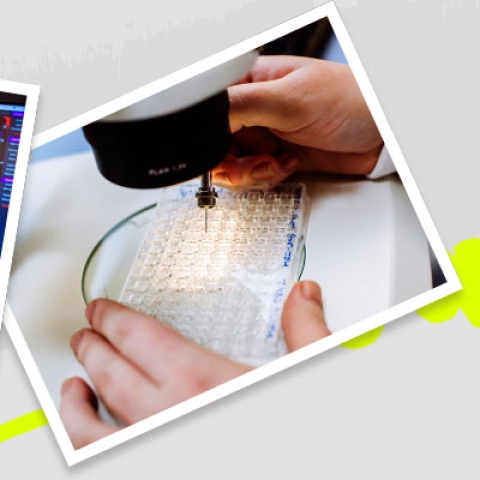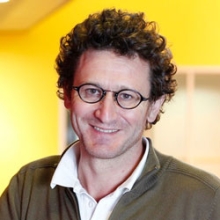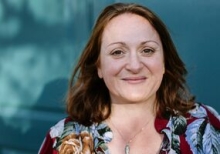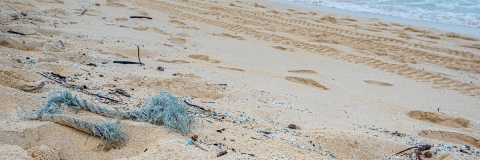

Microbial Transformation of Plastics in SE Asian Seas: a Hazard and a Solution (Microseap)
The MicroSEAP project seeks to understand the impact plastic has on marine ecosystems and find solutions to the problem. This could positively impact the lives of millions of people across the world and support the United Nations’ Sustainable Development Goals.
The problem of microplastic pollution
South East Asia has some of the highest levels of plastic pollution worldwide. There’s growing concern about the impacts of plastic litter on the health of the marine environment.
Understanding how plastics behave in the environment is at the heart of being able to assess their impact, such as the effects on fish stocks, and resilience to climate change and natural hazards.
This programme aims to improve understanding of how plastics harm marine environments — such as mangroves, coral reefs and beaches — and the ecosystem services these habitats provide. The findings will inform the development of new approaches to reduce plastic pollution in marine environments in South East Asia.
Research aims
The project will have three main impacts:
- Produce a step-change in the characterisation of the plastic threat, creating a better understanding of the problem of marine plastics and related challenges.
- Facilitate cooperation among Singapore, Indonesia, Vietnam and Philippine researchers with UK collaborators to create an international community able to search for new bioengineered solutions from beneficial enzymes in plastisphere biofilms, building on discoveries of useful enzymes discovered during this project.
- Directly address the implementation challenge of the governance of marine plastics by establishing action through policy networks in the region.
About the project
Plastics will be collected from polluted coastal areas in the region including mangroves, beaches and coral reefs. This will improve understanding of how plastic waste affects these areas and enable appropriate solutions to be developed.
Understanding the ‘plastisphere’ and characterising the threat
Firstly, MicroSEAP will investigate how microorganisms living on plastic surfaces affect the pollution threat from plastics.
We will examine the role of the ‘plastisphere’ (the combination of plastic and the microorganisms that live on it) in the breakdown of plastics, evaluating how this determines the fate of plastic waste in the marine environment and the risk it may pose to marine life.
Marine animals often become entangled in plastic waste, which can cause injury, infection and affect an animal’s ability to move and feed. Less obvious is the damage caused by microplastic ingestion. We know plastics are entering food webs when fish and marine mammals eat plastic fragments, but the effects they have on ecosystem function are not fully understood or quantified.
Discovering new enzymes that break down plastics
Secondly, the project will examine if the microorganisms that contribute to plastic degradation might provide a solution to the pollution problem.
Certain bacteria that live in the plastisphere contain enzymes that can break down plastics. It’s thought that these specialised enzymes have evolved from eating tough plant polymers and can now break down the polymers that make up plastics.
Enzymes are therefore a promising solution to the plastics crisis.
Naturally-occurring enzymes can be engineered in the lab to work more efficiently, as demonstrated by research at the University of Portsmouth’s Centre for Enzyme Innovation. The enzymes can be used for bio-recycling of plastic, supporting the transition to a circular economy whereby plastic is repurposed into new products rather than becoming waste.
Analysing DNA in the plastisphere will help to determine which microbial candidates may have the ability to break down plastics.
Informing policies on plastics and marine conservation
The insights generated by this research will be useful to policymakers and those responsible to managing marine ecosystems in South East Asia. Our findings will inform the development of interventions, mitigation and adaptation strategies to reduce the environmental damage from marine plastics.
Involving policy groups and member state representatives provides a direct line for integrating research into strategic documents like the Regional Action Plan on Marine Litter as well as in respective national ministries.
Our in-country partner networks will facilitate enhanced distribution and sharing of information among stakeholders, which can encourage community-driven actions to reduce plastic pollution.
Related research
-
Characterization and engineering of a two-enzyme system for plastics depolymerization
This publication shows the research that characterised and engineered an enzyme with the ability to break down crystalline polyethylene terephthalate, commonly known as PET plastic. MicroSEAP follows on from this research to examine how microorganisms contribute to plastic breakdown and how this determines the fate of plastic waste in the marine environment.
-
The ocean is swimming in plastic and it's getting worse – we need connected global policies now
MicroSEAP builds on the University’s work to evaluate options for the enhanced governance of marine plastic pollution. We’ll examine national and regional governance arrangements with a view to identifying options to tackle marine plastic pollution.
International collaboration
The project supports collaborations between researchers at the University of Portsmouth, the National University of Singapore, Nanyang Technological University, and in the wider south-east Asia region. This will enable researchers to access additional, often specific, expertise, gain new perspectives on research and build relationships with others in the field.
The project is part of the wider programme Understanding the Impact of Plastic Pollution on Marine Ecosystems in south-east Asia (South-East Asia Plastics - SEAP).
Funding
Funding support from the Natural Environment Research Council (NERC): £699,193.17 and $SGD1.25 million from the National Research Foundation (NRF), Singapore.
Research facilities
- The Aquatic Centre at our Institute of Marine Sciences houses our study organisms.
- Our Electron Microscopy and Microanalysis Unit is used for high-magnification imaging and analysis of natural and manufactured materials.
- The Centre for Enzyme Innovation studies the structure and function of molecules, chemical and bacterial compositions, and enzymes.
Researchers
Project partners
- Mei Lin Neo - National University of Singapore
- Bin Cao - Nanyang Technological University
- Swietenia Puspa Lestari and Yoga Kristama - Divers Clean Action
- Deo Florence Onda - University of the Philippines
- Pham Thi Hoa - Vietnam National University Ho Chi Minh
- Muhammad Reza Cordova - Indonesian Institute of Sciences
- Ria Saryanthi - BirdLife International (Indonesia)
Explore more of our research
Find out about our initiative to tackle the global plastics crisis and explore other areas of research at the university.
Revolution Plastics Institute
From combatting microplastics to analysing plastic policies around the globe, we’re putting our research into practice, working with local groups, organisations, businesses and individuals to solve the planet's plastic problem.
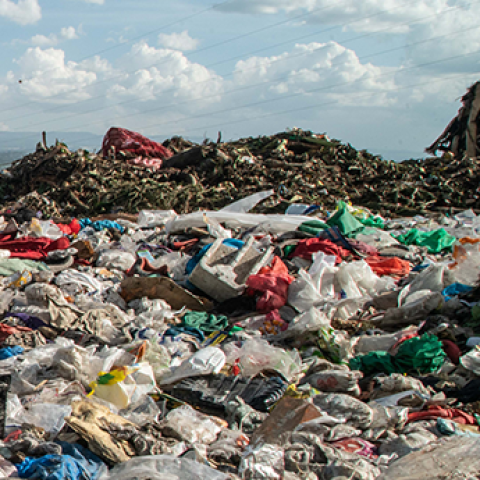
Global Plastics Policy Centre
The Global Plastics Policy Centre is helping to find sustainable solutions to tackle plastic pollution around the world.

Research and innovation
Find out more about research opportunities at Portsmouth, and how you can help us tackle the planet's most urgent challenges. Start your research journey today.
